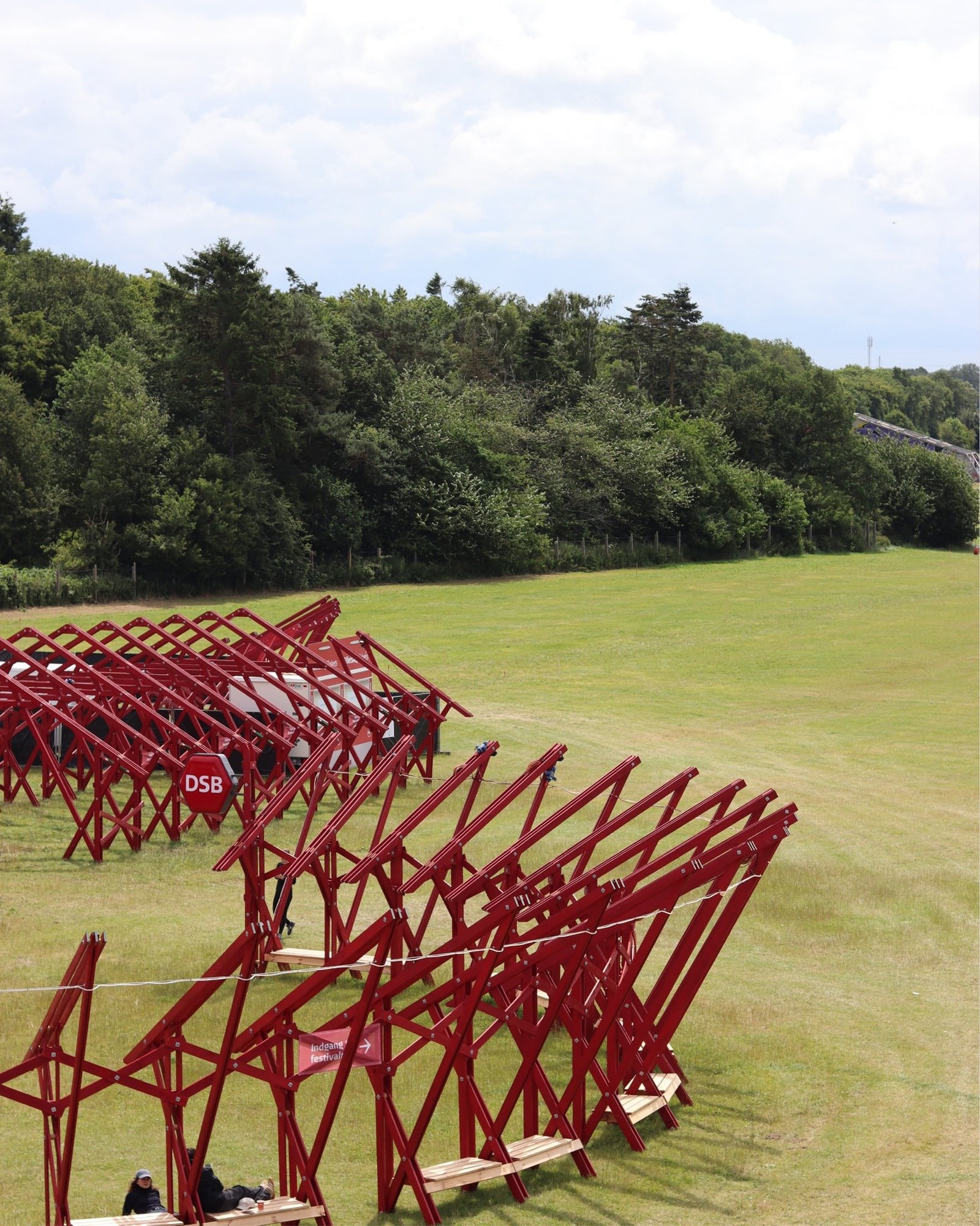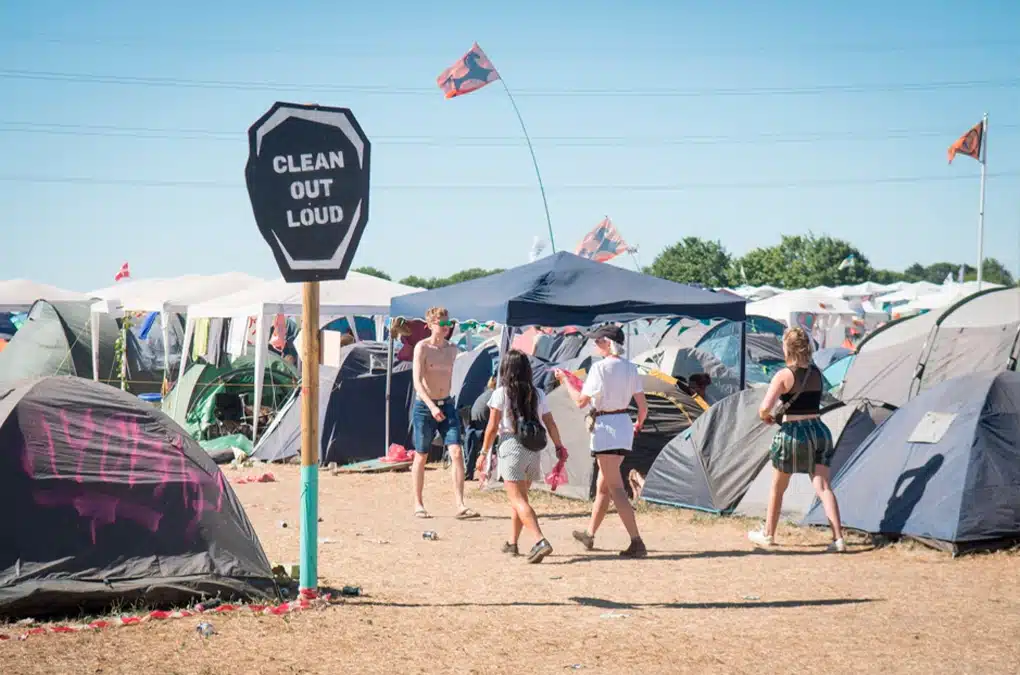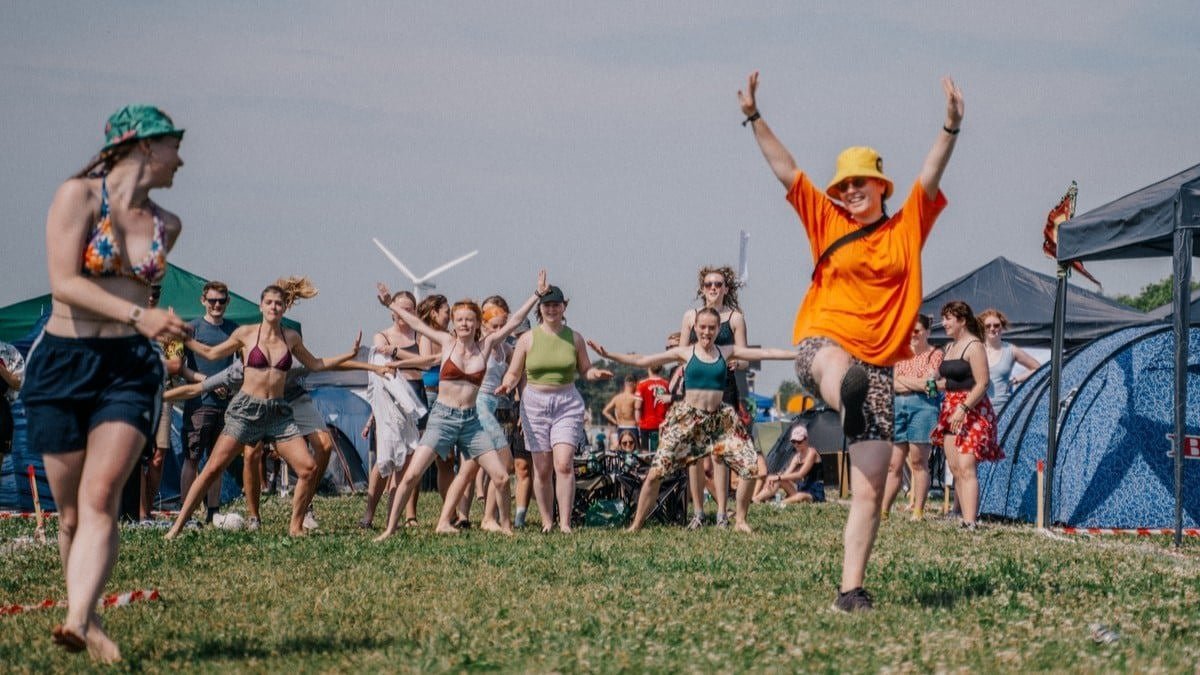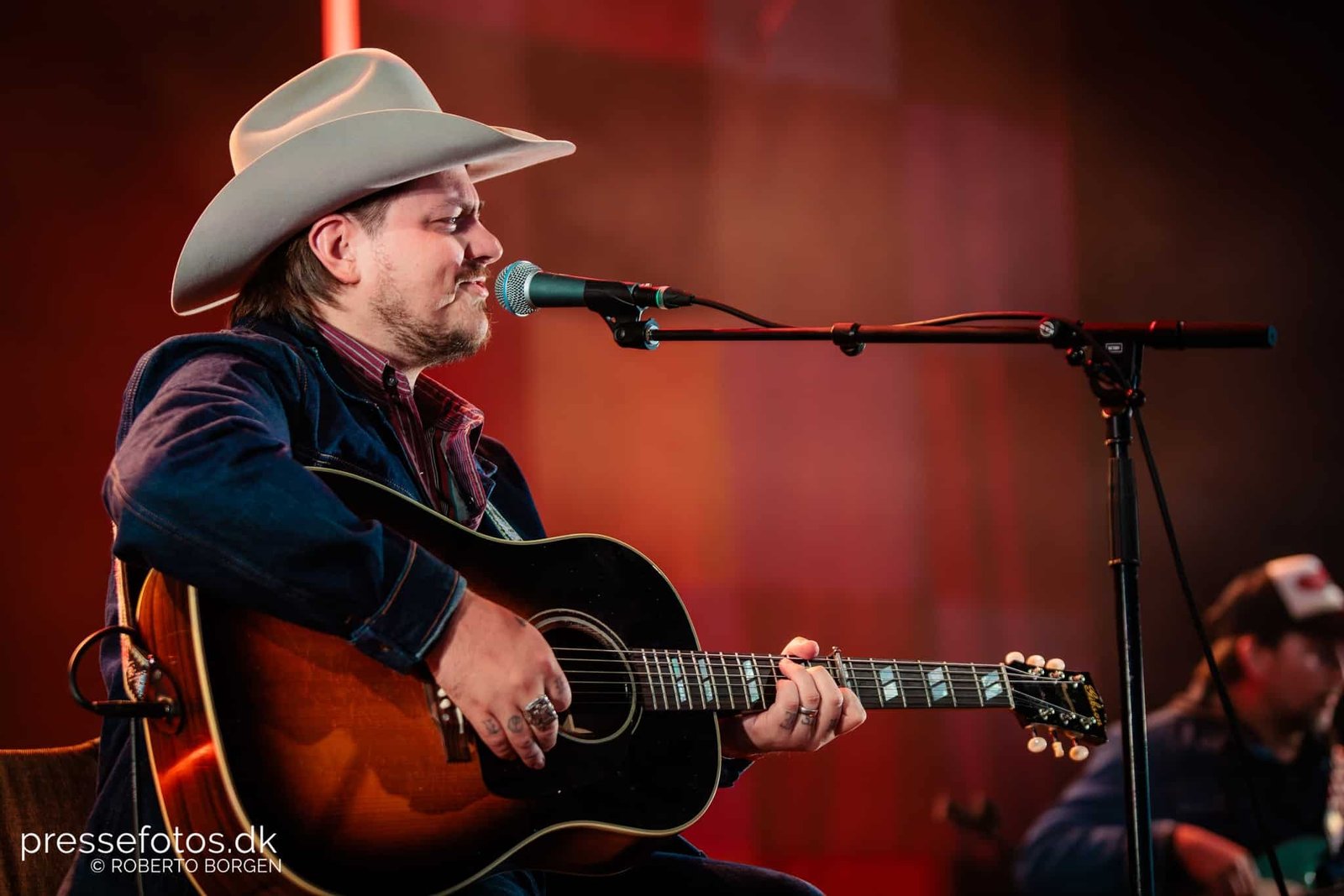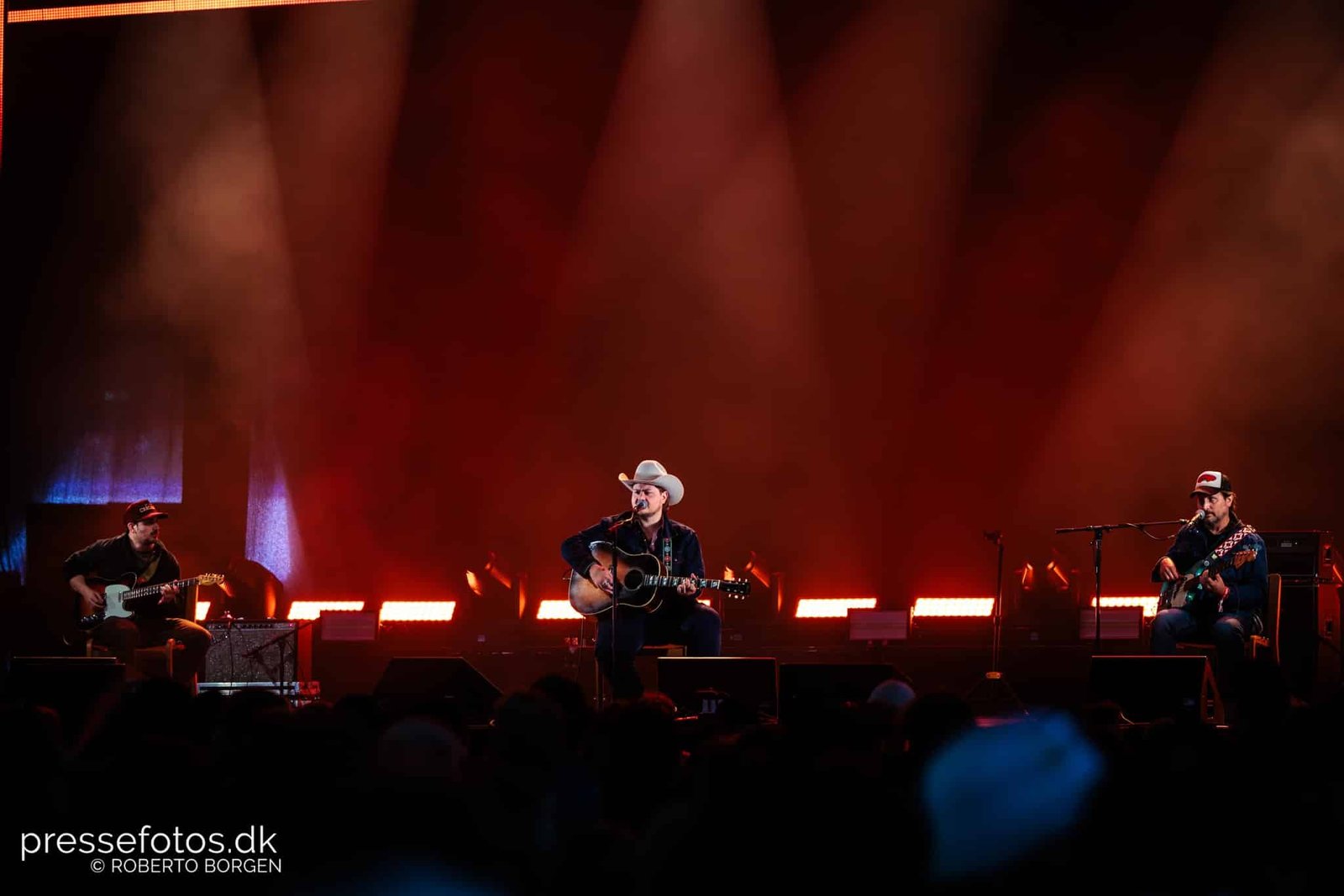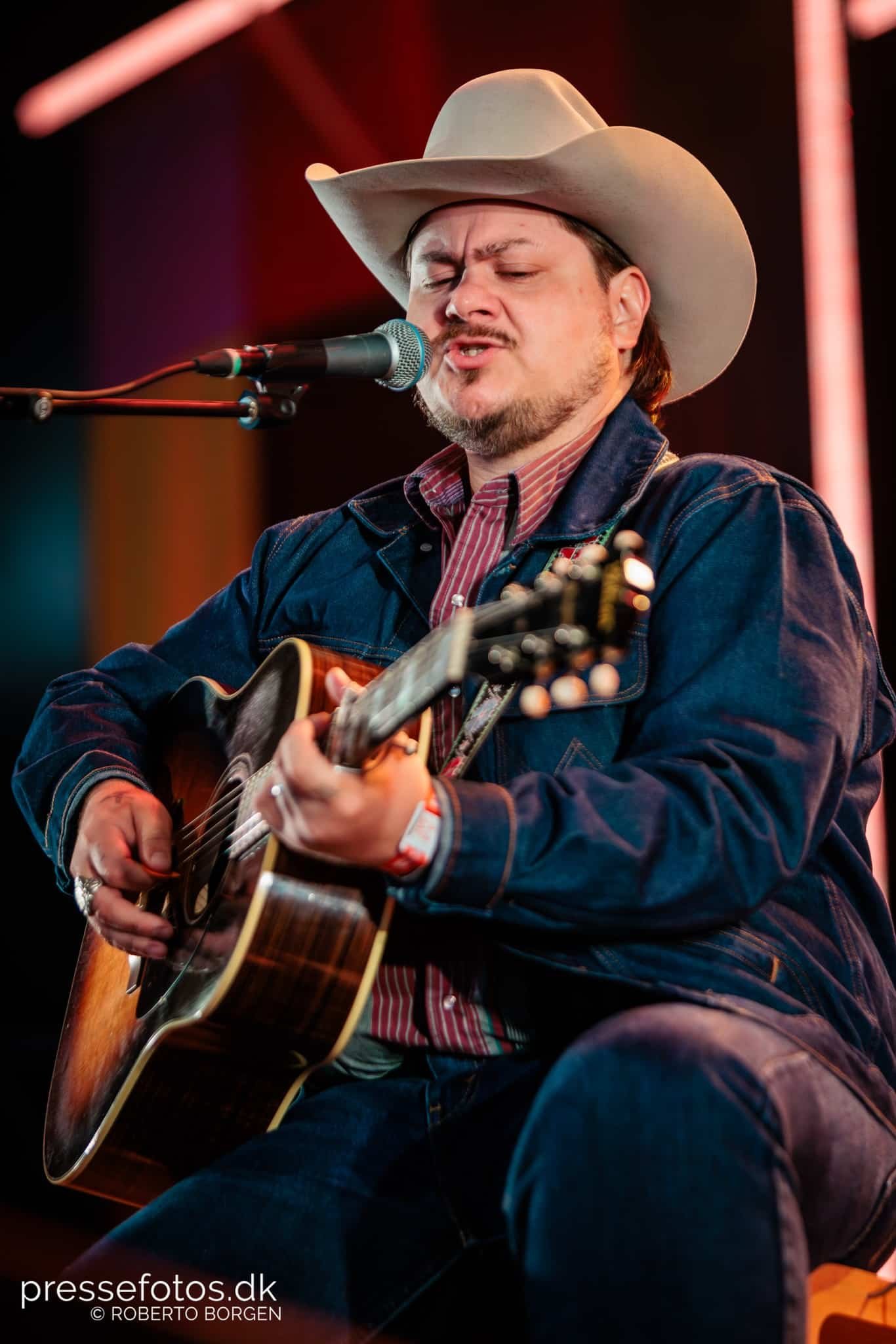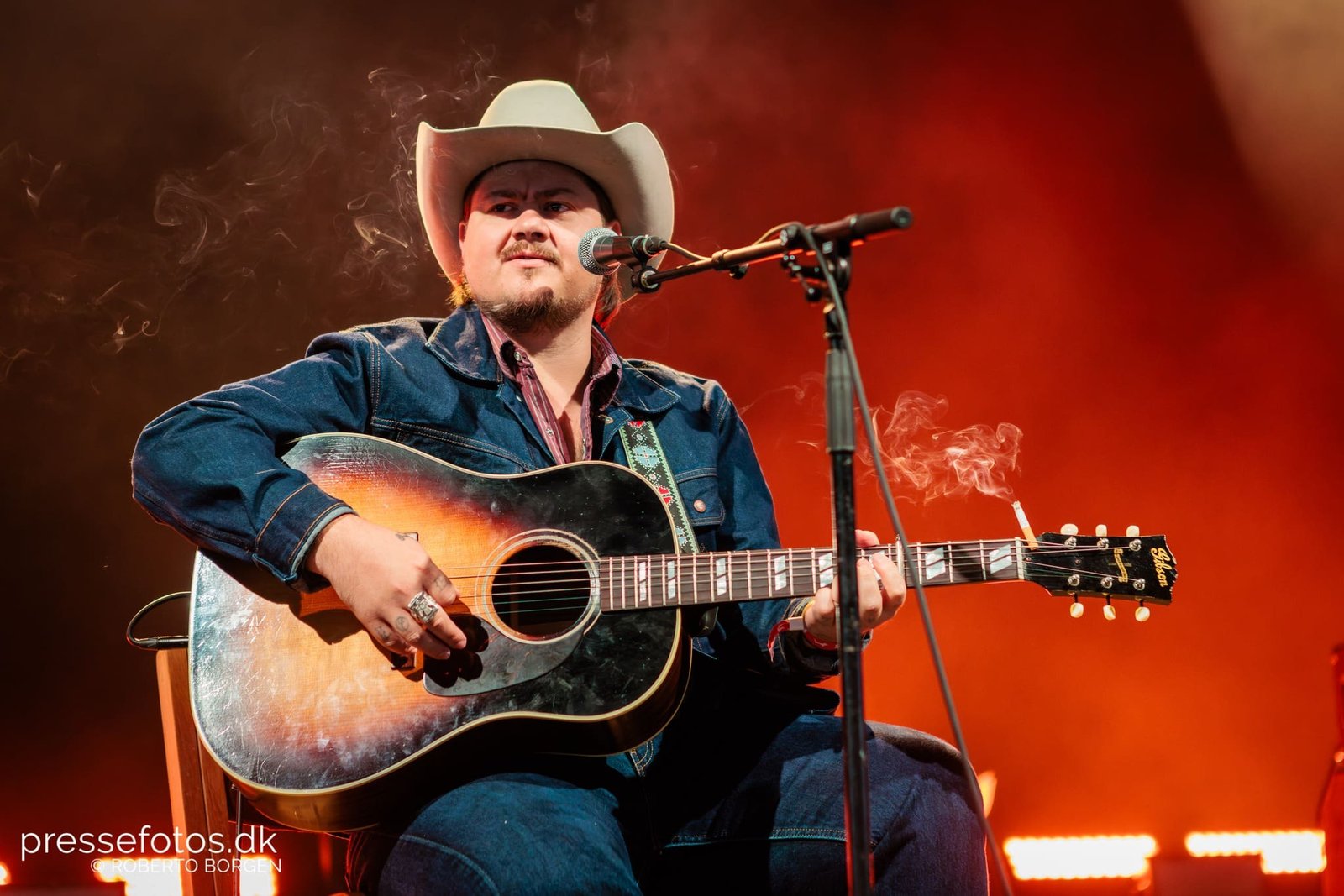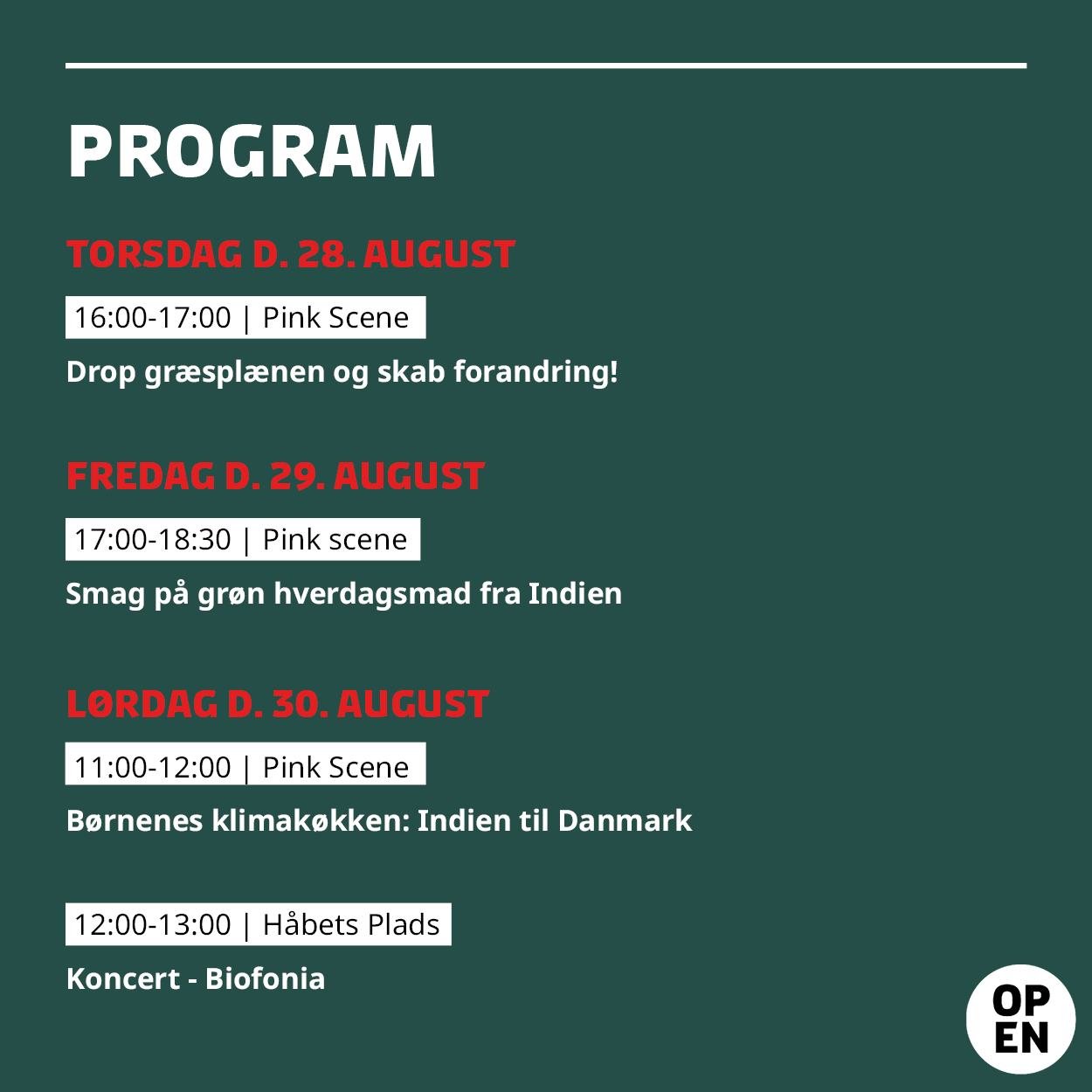Roskilde Festival – Denmark 2026
Background & History
Roskilde Festival, founded in 1971 as the Sound Festival by Mogens Sandfær, Jesper Switzer Møller, and Carl Fischer, is Northern Europe’s largest and most iconic music and arts festival, held annually in Roskilde, Denmark. Starting as a modest two-day event with 10,000–13,000 attendees and 20 bands, it was taken over in 1972 by the non-profit Roskilde Foundation, which donates all profits to humanitarian and cultural causes, particularly supporting children and youth globally. Now attracting 130,000+ participants from over 60 countries, the eight-day festival is renowned for its eclectic lineup, sustainability initiatives, and vibrant community spirit.
Key milestones include the introduction of the Orange Stage (1978), the shift to a four-day music program in 1983, and achieving carbon-neutral certification in recent years. The festival has hosted legends like Bob Marley (1978), Nirvana (1992), and Beyoncé (2018), while fostering new talent. Its “Reduce, Sort, Reuse” campaign and eco-friendly innovations, like solar-powered stages, set a global standard for sustainable festivals. The Roskilde Festival Group also supports year-round initiatives like GRASP (sustainability platform) and Hall 9, a renovated cultural hub opening in 2026. For an in-depth history, visit https://www.roskilde-festival.dk/en/history/.
Event Highlights
- Main Attractions: Over 200 acts perform across 8+ stages, covering rock, pop, hip-hop, electronic, jazz, folk, and world music, with 2026’s lineup (TBD) expected to feature global stars like Metallica, Dua Lipa, or The Weeknd (based on 2025 trends) and emerging Nordic artists.
- The Orange Stage (60,000 capacity) hosts headliners with pyrotechnics, LED visuals, and drone shows, while Arena (indie/pop), Apollo (electronic), Avalon (world music), and Pavilion (up-and-coming acts) cater to diverse tastes. Over 400 non-musical events include circus performances, street theater, dance troupes, and activism panels on climate, equality, and social justice.
- Unique Traditions: The festival opens with a ceremonial flag-raising on June 27, symbolizing community unity. The four Warm-Up Days (June 27–30) feature art workshops, sports tournaments, and communal feasts, while the main music days (July 1–4) electrify with concerts. Attendees, known as “Roskildeans,” exchange friendship bracelets, a nod to festival camaraderie. Nightly fireworks, eco-focused initiatives like reusable cup systems, and the “Clean Out Loud” campaign encourage sustainability. The 2026 theme (TBD) will inspire immersive stage designs and art installations.
- Special Features: The Art Zone showcases giant sculptures, interactive light displays, and graffiti walls. The Platform hosts talks with activists and artists, while the Skate Park and Street Zone offer BMX shows and street art.
- The Dream City area features DIY camps with unique themes (e.g., pirate ships). Wellness zones provide yoga, meditation, and saunas. The festival is cashless, using wristbands for payments, and offers free Wi-Fi hotspots. Explore all programs at https://www.roskilde-festival.dk/en/programme/.
Date & Duration
- Dates: June 27–July 4, 2026 (Warm-Up Days: June 27–30; Main Festival: July 1–4)
- Duration: 8 days
Venue / Location
- City: Roskilde, Zealand, Denmark (30 km west of Copenhagen)
- Main Venue: Festivalpladsen, Darupvej 19, 4000 Roskilde, a 130-hectare site with fields, lakes, and forests, transformed into a temporary city. Google Maps
- Notable Areas:
- Orange Stage: Iconic 60,000-capacity arena with state-of-the-art sound and visuals.
- Arena Stage: Indoor venue for indie, pop, and rock (15,000 capacity).
- Apollo Stage: Electronic music hub with late-night DJ sets and immersive lighting.
- Avalon Stage: World music and folk performances in an open-air setting.
- Art Zone: Interactive installations, including recycled sculptures and digital art.
- Dream City: Creative DIY camps built by attendees.
- Food and Market Areas: Food courts, supermarkets, and festival shops in East and West zones.
- Venue Details: Detailed maps and layout at https://www.roskilde-festival.dk/en/festival-info/maps/.
Ticket Information
- Sales Process: Tickets are sold online via https://www.roskilde-festival.dk/en/tickets/, with early-bird sales opening in autumn 2025. Pre-registration ensures priority for limited passes (10,000 early-bird tickets). Special Camping and Community Camping applications open in January 2026. Trusted partners include https://www.ticketmaster.dk and https://www.festicket.com. Limited on-site ticket sales may be available, subject to availability.
- Admission (USD, estimated based on 2025 rates):
- Full Festival Ticket (8 days): $300–$450
- Day Ticket (July 1–4): $100–$150
- Special Camping Add-On: $50–$200 (e.g., Get A Place, Rent A Pitched Tent)
- VIP Ticket: $500–$800 (premium viewing, lounges, fast-track entry)
- VIP Options: VIP tickets include Orange Stage viewing platforms, exclusive bars, priority entry, and access to VIP-only areas with gourmet food. Luxury camping options like Tenthouse offer raised floors, mattresses, and private facilities. Details at https://www.roskilde-festival.dk/en/tickets/.
- Note: 2026 prices will be confirmed in autumn 2025. Book only through official channels; report fraud to ticket@roskilde-festival.dk. Pre-register at https://www.roskilde-festival.dk/en/tickets/pre-register.
Contact Information
- Email: info@roskilde-festival.dk (general inquiries); ticket@roskilde-festival.dk (ticketing); accreditation@roskilde-festival.dk (press); crew@roskilde-festival.dk (volunteers)
- Phone: +45 46 36 66 13 (office hours: Mon–Fri, 10:00–12:00)
- Website: https://www.roskilde-festival.dk (official), https://www.ticketmaster.dk (tickets), https://www.festicket.com (packages)
- Social Media:
- Instagram: @roskildefestival
- Twitter: @roskildefestival
- Facebook: @RoskildeFestival
- Head Office: Roskilde Festival, Rabalderstræde 7, 4., 4000 Roskilde, Denmark
- Festival Address: Festivalpladsen, Darupvej 19, 4000 Roskilde
- Press/Volunteers: Press inquiries via accreditation@roskilde-festival.dk; volunteer applications (30,000+ roles, e.g., security, stage crew, waste management) at https://www.roskilde-festival.dk/en/crew/. Volunteer registration opens early 2026.
- Note: Response time ~24–48 hours; English, Danish, German, and limited French support. Contact form at https://www.roskilde-festival.dk/en/contact/.
Cultural Experience
Roskilde Festival, managed by the non-profit Roskilde Festival Group, is a vibrant celebration of music, art, activism, and community, rooted in equality and sustainability. Attendees, called “Roskildeans,” embrace eclectic styles—bohemian, punk, or colorful festival gear—often exchanging friendship bracelets to symbolize unity. The festival’s 130-hectare site becomes a temporary utopia, with stages like Avalon showcasing African, Latin, and Nordic music, and the Platform hosting talks on climate change, gender equality, and social justice.
The Art Zone features recycled sculptures, light installations, and interactive murals, while Dream City’s DIY camps (e.g., themed pirate or sci-fi setups) foster creativity. Sustainability is core, with the “Reduce, Sort, Reuse” campaign, waste sorting stations, and solar-powered infrastructure. The festival supports inclusivity, welcoming all identities, and donates profits to causes like youth education. Explore its ethos at https://www.roskilde-festival.dk/en/about/.
Food & Drinks
- Danish Classics: Smørrebrød (open-faced sandwiches with herring or shrimp), frikadeller (meatballs), rødgrød med fløde (berry dessert), and Danish pastries.
- International Options: Over 100 food stalls offer vegan burgers, sushi, falafel, Indian curries, Mexican tacos, and gluten-free dishes.
- Street Food: Hot dogs, kebabs, wood-fired pizzas, and vegetarian wraps in East/West camping zones and near Orange Stage.
- Drinks: Carlsberg and Tuborg beers, local ciders, festival-themed cocktails, wine, and non-alcoholic options like elderflower juice. Free cold water stations and hot showers available.
- Dining: Food courts in camping areas, supermarkets, and festival shops (pharmacies, camping gear). VIP areas offer curated menus with local ingredients. Guide at https://www.roskilde-festival.dk/en/festival-info/food-and-drink/.
Getting There
- Nearest Airports: Copenhagen Airport (CPH, 35 km); Roskilde Airport (RKE, 7 km, limited flights). Shuttles from CPH via https://www.roskilde-festival.dk/en/travel/.
- Public Transport:
- Trains: DSB trains from Copenhagen Central to Roskilde Station (25 minutes), then festival shuttles or 20-minute walk to Festivalpladsen.
- Buses: Festival-organized shuttles from Copenhagen; local buses (e.g., 600S, 202A) to Darupvej. Tickets at https://www.moviatrafik.dk.
- Parking: Limited at Festivalpladsen; pre-book via https://www.roskilde-festival.dk/en/festival-info/parking/. P+R lots in Roskilde encouraged for carpooling.
- Other: Biking from Roskilde (5 km) or Copenhagen (30 km); rentals via https://www.donkey.bike. Walking from Roskilde Station. Travel details at https://www.roskilde-festival.dk/en/travel/.
Accommodation Options
- Camping: Open June 27–July 5, 2026, across East and West zones:
- Regular Camping: Free with festival ticket; choose your spot in West (bring own tent, no reservation).
- Special Camping (sales January 2026): Options include Get A Place (50 m² for 6–10 people, ~$100), Get A Silent Spot (quiet zone, ~$80), Rent A Pitched Tent (pre-pitched with air mattress, ~$150), Tenthouse (luxury with beds, ~$200), or Caravan Camping (RV spots, ~$120).
- Community Camping: Free, application-based (opens January 2026); includes Roskilde Road Trip (international groups), Settle’n Share (shared activities), and Clean Out Loud (sustainability focus). Apply at https://www.roskilde-festival.dk/en/camping/community-camping/.
- Volunteer Camping: Designated areas for 30,000+ volunteers; apply at https://www.roskilde-festival.dk/en/crew/.
- Facilities: Hot/cold showers, toilets, cloakrooms, supermarkets, and festival accessory shops.
- Hotels: 3–5 star options in Roskilde (e.g., Scandic Roskilde Park, Comwell Roskilde) or Copenhagen (e.g., Tivoli Hotel). Book via https://www.roskilde-festival.dk/en/accommodation/.
- Local Options: Airbnbs, guesthouses, or hostels in Roskilde’s historic center or Copenhagen; book 6–12 months early.
- Recommendation: Book camping via https://www.roskilde-festival.dk/en/camping/ or hotels/packages via https://www.ticketmaster.dk or https://www.festicket.com.
Maps
Contact
Video
FAQ's
What are the dates for Roskilde Festival 2026?
June 27–July 4, 2026 (Warm-Up Days: June 27–30; Main Festival: July 1–4). Confirm at https://www.roskilde-festival.dk/en/festival-info/.
How do I buy tickets for 2026?
Tickets ($300–$450) on sale autumn 2025 at https://www.roskilde-festival.dk/en/tickets/. Pre-register for early-bird passes; report fraud to ticket@roskilde-festival.dk.
What are the camping options and facilities?
Regular (free, bring own tent), Special ($50–$200, pre-pitched or luxury), and Community (free, apply January 2026). Includes showers, toilets, and food stalls. Details at https://www.roskilde-festival.dk/en/camping/.
Are there accessibility accommodations?
Wheelchair-accessible paths, toilets, viewing platforms, and sign language interpreters. Request via info@roskilde-festival.dk 60 days prior. Info at https://www.roskilde-festival.dk/en/festival-info/accessibility/.
What should I pack for the festival?
Tent (for regular camping), comfy shoes, reusable water bottle, sunscreen, layers, and rain gear (15–25°C, possible rain). Packing guide at https://www.roskilde-festival.dk/en/festival-info/packing-list/.

